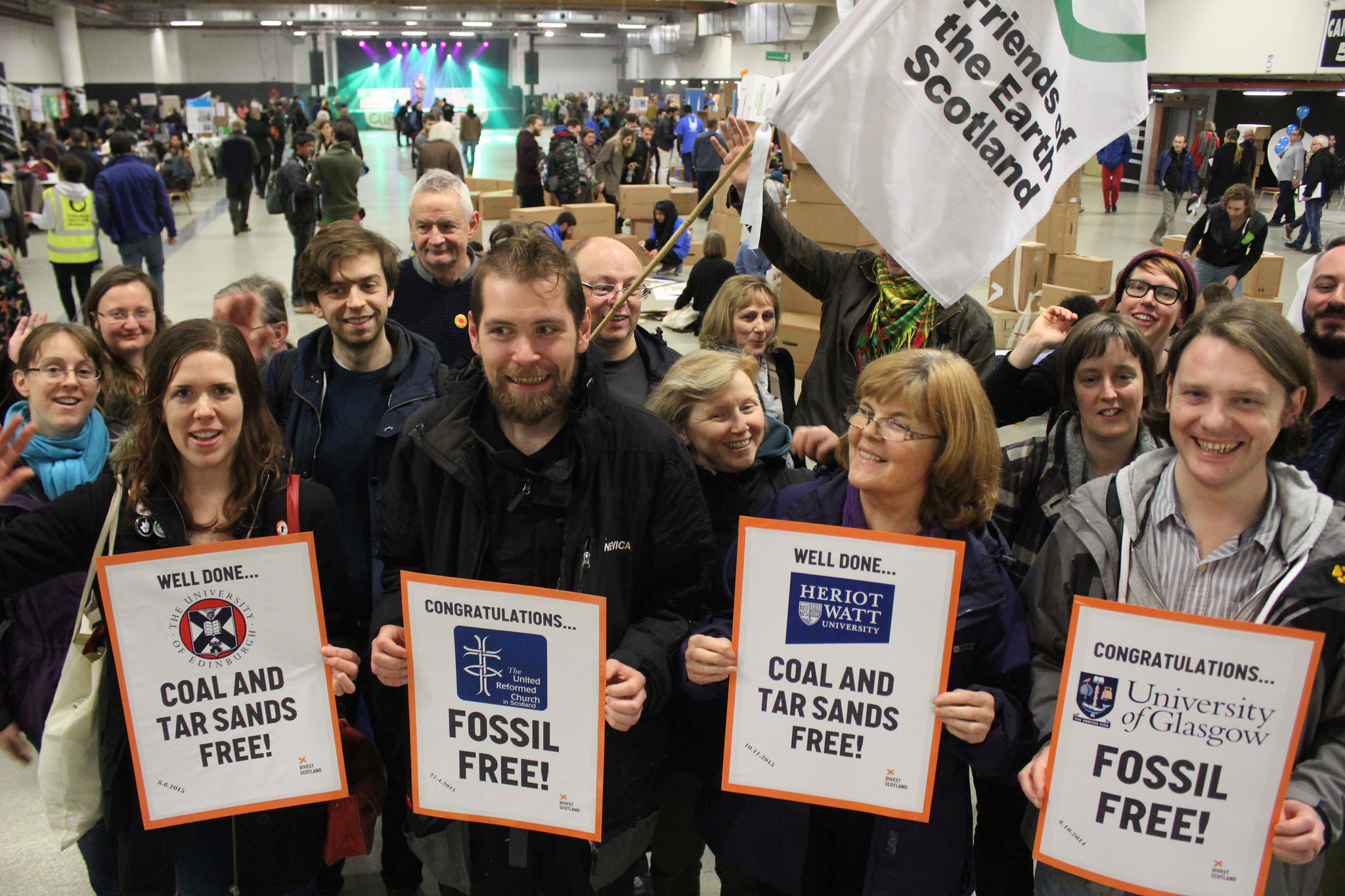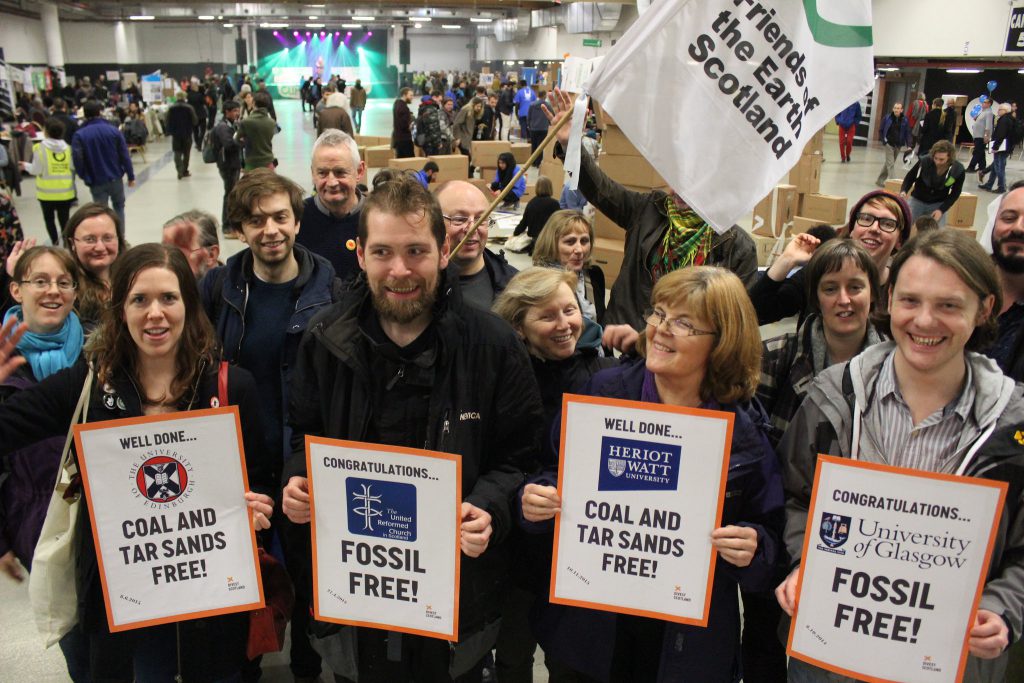
Breaking the power of fossil fuels: divestment at work

It’s not right, but money talks and money makes the world go round. Despite years of scandal, failure and chaos, financiers in the City of London continue to make the big calls on how to invest, and in doing so, hold our common future in their hands. Almost 10 years since the financial crash this is a frightening and precarious state of affairs.
The City doesn’t know best
Campaigners are challenging the power of big finance by insisting that investors commit to divest from fossil fuel companies. By demanding divestment we are saying that we know better than the financial industry and in many cases, we are forcing them to act.
And it’s working. Funds worth $6.15 trillion have made some sort of policy commitment to withdraw from fossil fuels. On 24th May the Financial Times reported that UK investment in green funds had “shot to a record high” with a 500 per cent increase over the last 10 years.
However despite more funds “going ethical” such funds still only make up 1.3 per cent of investment. A complete sea change across the sector or top-down regulation by the UK Government would be needed before the financial industry can spearhead a green revolution for the UK. At the rate which our climate is deteriorating it often feels like we can’t wait for this change: we need campaigning tactics that are more urgent. But divestment campaigning is also spurring deep changes far outside of the City of London, subtle changes that most wouldn’t even notice are happening.
Reputational damage well deserved
When Glasgow students won Europe’s first University commitment to divest from all fossil fuels they spurred the reallocation of £18 million of the university’s investments. But they also got one of Scotland’s wealthiest and most influential institutions to make a strong statement against fossil fuel corporations. Glasgow told big oil ‘we don’t buy your version of the future: be gone’.
New research suggests that divestment can reshape ‘social norms’ by undermining the credibility of fossil fuel companies. That is a big deal, because it is the ‘soft power’ held by fossil fuel companies that gives them so much influence in our society. Wealthy and broadly popular companies like these wield huge power over political systems, ensuring that fossil fuels (instead of renewables) benefit from subsidies, low taxes and minimal regulation. By helping to break this power, divestment is making victory for the whole climate change movement possible.
Oil major Shell recently acknowledged this phenomenon. According to the website Desmog, their annual report states that divestment could cut the company’s value and make it harder for them to borrow money for new projects. In other words, Shell are worried that divestment will make it harder for them to get oil out of the ground.
Having difficult, necessary conversations
Four years after Glasgow’s victory campaigners at Edinburgh received the same level of commitment from their university – and a whole lot more. A relentless campaign that lasted more than a half decade made new connections with staff and researchers and influenced multiple generations of students. The continuation of oil and gas research and false solutions like carbon capture and storage in the University had been seriously
questioned, as was the presence of polluting companies at careers fairs.
In May the Church of Scotland General Assembly narrowly voted against divestment, to the dismay of just under half of the Church’s delegates. But thanks to the issue being raised 600 or so assembled commissioners spent over two hours discussing action on climate change and what the Church could do about it. They listened as ministers from as far afield as South India and Malta expressed alarm and dismay at the Kirk’s investments, speaking in blunt terms about the impacts of climate change on communities in poverty.
Others brought the problem home to Scotland sharing efforts local churches were making to use electric vehicles, go renewable and cut energy usage, and posing difficult but critical questions about how we ensure good employment and vibrant Scottish communities in a fossil free future.
Just as Edinburgh University found these are not all easy provocations to resolve. But by exploring them honestly, and having the conviction to act on what is unearthed, is the only way our communities will truly rise to the challenge of climate change.
Climate change is pretty scary, and a rapid transition away from fossil fuels looks far off whilst oil companies are keeping their choke hold on our society. We need campaigning approaches which are both radical and immediate.
Fossil fuel divestment is giving oil companies the bad reputation they deserve, reclaiming our future from big finance, and provoking profoundly productive debates within institutions and communities.
To find out more about the campaign for fossil fuel divestment in Scotland visit our divestment web page.
